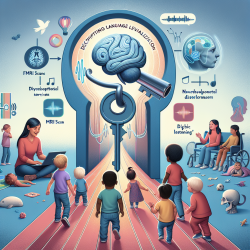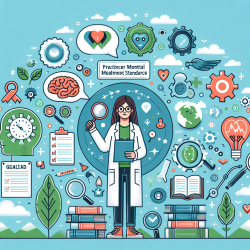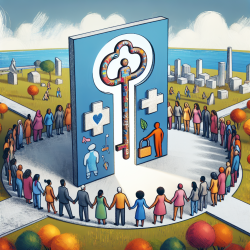Introduction
As a Special Education Director, you are constantly seeking ways to enhance the educational and therapeutic experiences for students with special needs. The findings from the research article titled "Results of a participatory needs assessment demonstrate an opportunity to involve people who use alcohol in drug user activism and harm reduction" offer valuable insights that can be applied to your practice. This blog will explore how these findings can help practitioners improve their skills and encourage further research in the field of harm reduction.
Understanding the Research
The study conducted a qualitative participatory needs assessment with people who use illicit substances in British Columbia, Canada. The unexpected finding was the potential for drug users' organizations and harm reduction programs to involve "illicit drinkers," who consume non-beverage alcohol or drink beverage alcohol in criminalized ways. The study highlighted shared priorities and values between drug users and illicit drinkers, such as improving treatment by health professionals and the police, expanding housing options, and implementing harm reduction services.
Implementing the Findings
As practitioners, there are several ways to implement the findings from this research:
- Expand Harm Reduction Services: Consider broadening harm reduction services to include illicit drinkers. This could involve creating safe spaces for alcohol consumption and providing education on reducing harms from non-beverage alcohol.
- Foster Inclusivity: Encourage drug users' organizations to include illicit drinkers by addressing potential barriers such as racism, horizontal violence, and extreme marginalization.
- Promote Shared Values: Focus on shared values such as collectivity, accountability, and freedom from surveillance to build alliances between drug users and illicit drinkers.
Encouraging Further Research
The study also identified knowledge gaps around harm reduction for alcohol. Practitioners are encouraged to conduct further research to better understand the effects of non-beverage alcohol on the body and to develop harm reduction strategies tailored to illicit drinkers.
Conclusion
Incorporating the findings from this research into your practice can lead to more inclusive and effective harm reduction services. By engaging illicit drinkers and addressing their unique needs, practitioners can contribute to improved well-being for some of the most marginalized members of society.
To read the original research paper, please follow this link: Results of a participatory needs assessment demonstrate an opportunity to involve people who use alcohol in drug user activism and harm reduction.










